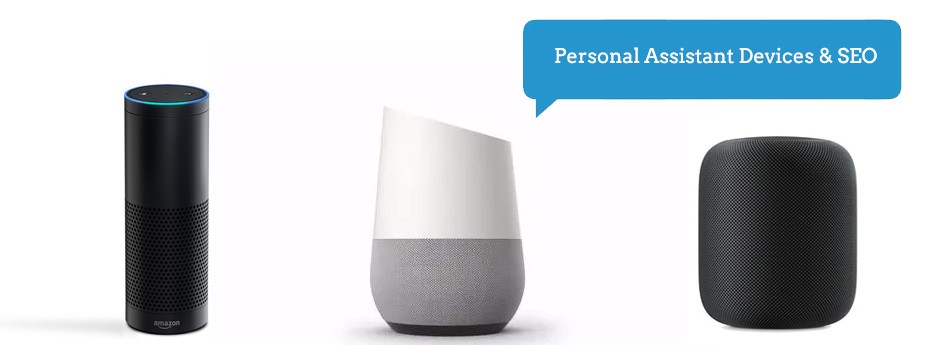Digital virtual assistants have exploded onto the scene, and now look likely to drastically change the way users interact with both their smartphone and home assistant devices. Home assistance devices that are most discussed right now are the Amazon Echo, Google Home and soon to be released, Apple Homepod. We can expect the rise of this technology to drive an improvement in search engine accuracy by companies such as Google, Microsoft and Yahoo as users become more reliant on the specific nature of voice-operated search commands. What, therefore, does the future hold for SEO in the realm of digital virtual assistants? And how should you adapt your business’s SEO strategy to take advantage of this new phase in personalized search engine technology?
Alexa (Amazon Echo)
Amazon was the first to the party with the Amazon Echo, which relies on the Amazon Alexa virtual assistant technology. Amazon claims Alexa is “always getting smarter”, using updates to continuously keep it at the forefront of the market. They also claim that it is able to handle a multitude of tasks from reading the news to controlling lights, fans, and switches. Yet on some of the simpler but more practical aspects, Alexa has failed. The extensive testing done by the New York Times in a comparison of the top virtual assistants found Alexa struggled with traffic estimates, directions and availability of flights, for example. If Amazon really wants Alexa and the Echo to keep them at the top of the game, they will need to straighten out the device’s compatibility with these simple tasks. Alexa does, however, excel in music-related tasks, with which it was able to outshine the Google Home with its ability to recognize requests for more obscure versions of songs using commands like “instrumental version”, and for opening apps like Pandora, which its competitors struggled with.
Google Home
The Google Home device burst onto the scene in November 2016, and was not surprisingly an eagerly awaited appointment considering the additional access Google have to the integration of their own apps for this device. However, this is one area where the device failed to live up to expectations. Techradar.com, notes in their extensive analysis of the device, that upon release the integration with Google’s own services was missing and below par. They also noted that the language used when making searches needed to be super accurate, making it often a frustrating experience. Once you did manage to break through the language barrier, the amount of data Google could call upon was particularly impressive, for example being able to quote an extensive list of flight prices to anywhere in the world from your GPS location, delivering accurate and detailed directions, and providing information on local businesses. These teething problems may just be the result of a rushed release spurred on by the earlier introduction of the Echo, but Google needs to update their voice interface software and Google service integration if they really want to compete!
Apple Homepod
The Apple Homepod, officially announced at WWIC 2017, will be released in December 2017. Due to the fact, it is not yet out, and the secret nature surrounding all of Apple’s new releases, little performance information is now available. What we can tell you is that Apple expects this device to revolutionize our indoor music listening experience, with 7 tweeter speakers and a 4-inch upwards-facing woofer, you can expect it to pack a punch. The device will also use spatial awareness technology, that can scan a room for its dimensions, and adapt the device’s sound output to the acoustic dimensions of the room, resulting in a high-quality listening experience wherever it is.
So, how will all of these exciting devices change our approach to SEO?
Firstly, the nature of the how results are presented will drastically change. Currently, when someone searches a term in Google, they have a list of potentially tens of thousands of pages to choose from, and whilst their first choice is often in the first few results, they have the option to look further down until they’ve found the page that suits them best. With voice automated searches through a virtual assistant, this will not be the case, the results will only come from the first 1-4 pages, depending on which device you use. As voice search increasingly becomes the norm, there will be mounting pressure on businesses to occupy these already much sought after spots on Google. As a result, those that find themselves able to occupy these top search engine result places should expect to see an increased click-through rate.
Secondly, this will also mean that there is pressure on search engine operators like Google, Microsoft, and Yahoo to further optimize the search engine’s precision. The technology already exists that builds on users’ preferences to reach more personalized results. This technology will be increasingly refined and integrated into searches, meaning that SEO will need to adapt and become much more specific in the future to ensure that it complies with Google’s more accurate, personalized approach. The personalization technology may mean that in the future, we see SEO defined less by the demands and control of search engine operators, and more by the individual demands of users who seek and more personalized, specific search.





